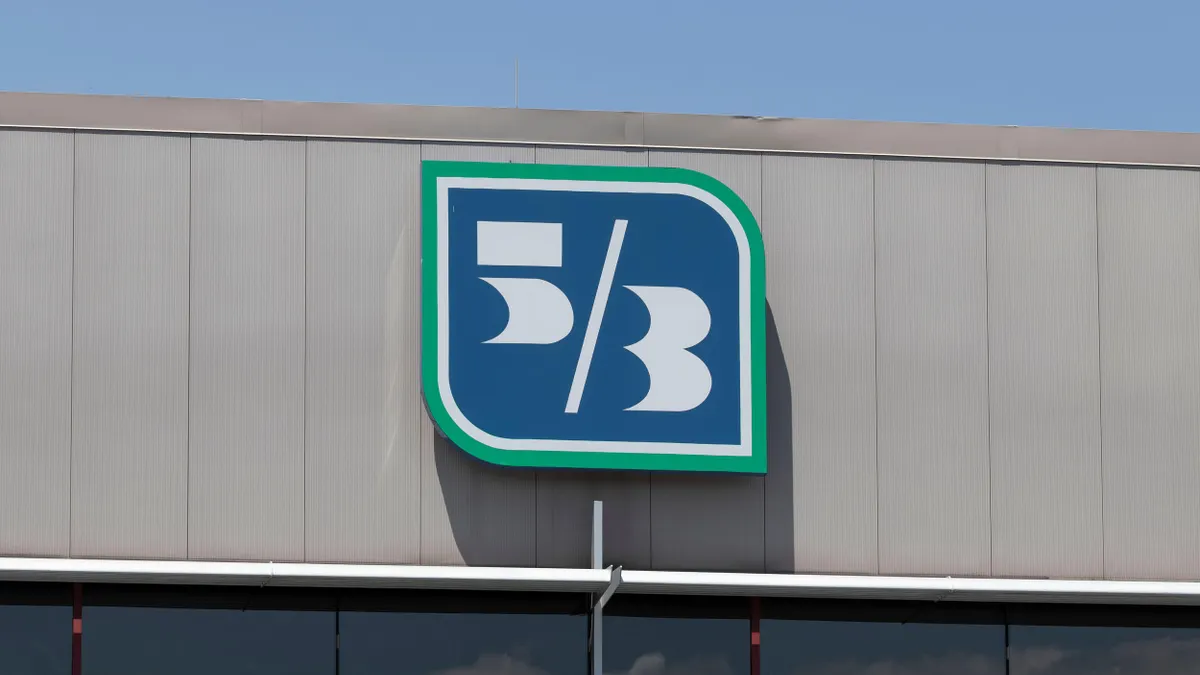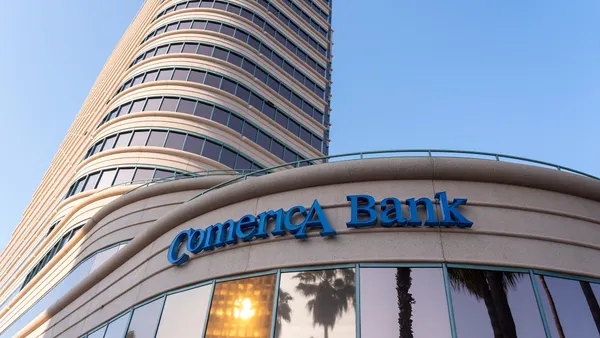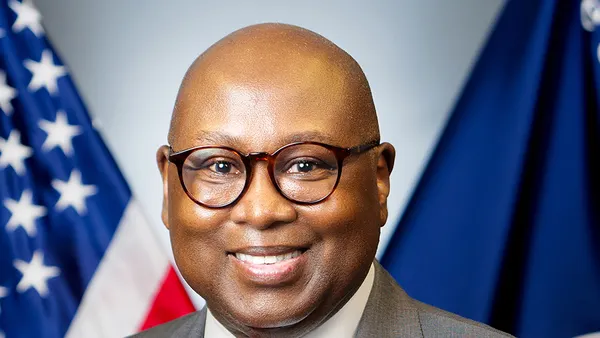Dive Brief:
- Fifth Third has been chosen by the Treasury Department’s Fiscal Service Bureau as the financial agent and issuing bank to manage the Direct Express prepaid card program, the Cincinnati-based lender said Tuesday.
- The five-year agreement began Tuesday. The Treasury Department didn’t immediately respond to a request for comment. Last November, BNY was selected as the financial agent for the program, “along with a group of additional new service providers,” a BNY spokesperson said Wednesday. “Due to readiness challenges involving one of the providers, Fiscal Service made the decision to discontinue the agreement,” the spokesperson said.
- The development comes as Fifth Third also disclosed that it “recently discovered alleged external fraudulent activity at a commercial borrower” of the bank that may result in a “material” impairment charge of between $170 million and $200 million, according to a securities filing.
Dive Insight:
The five-year Direct Express deal with BNY had been set to begin in January. Dallas-based lender Comerica, which had been Treasury’s partner on Direct Express since 2008, agreed to extend its services for three years “to allow for the orderly transfer” of the program to BNY.
On Tuesday, Comerica CEO Curt Farmer mentioned at an investor conference that the bank continues to manage the Direct Express program, and accounts have not yet migrated, even though the switch to BNY had been announced late last year.
“It’s been a bit of business as usual for us,” Farmer said, “but at some point, we assume that a transition will occur.” For Comerica, Direct Express average deposits in the second quarter were $3.7 billion.
The Direct Express program serves about 3.4 million Americans, most of whom are unbanked, allowing them to receive their monthly federal benefits via a prepaid debit card. “Direct Express plays a critical role in delivering federal benefits payments electronically, especially lifeline payments such as Social Security and Veterans benefits,” Fiscal Service’s commissioner, Tim Gribben, said in the bank’s news release.
The program is the “equivalent of the second-largest neobank in the U.S. with similar average revenue per customer, but significantly better profitability,” Fifth Third CEO Tim Spence said Wednesday at a Barclays investor conference.
Fiscal Service “determined that Fifth Third has the vision and capability to expand the Direct Express program over the five-year term to deliver compelling mobile applications and digital options designed to provide frictionless value for millions of debit card recipients,” the bank said in a news release.
Comerica will continue to service existing accounts until cardholders are reissued new cards by $210 billion-asset Fifth Third. The Cincinnati lender expects to begin enrolling new Direct Express participants in January, and convert existing participants in mid-2026, Spence said.
Fifth Third will include Money Network Financial as the program manager, and Mastercard will remain the program's payment network, the regional bank said.
The move to Fifth Third “marks a step forward in the Fiscal Service’s mission to provide a modern, seamless and secure payment experience for federal benefit recipients,” the bank said.
Fifth Third said it will be able to offer Direct Express program recipients capabilities such as virtual cards, cardless ATM access, rent and other bill payment services, and digital wallet integration.
“We’re proud to have been selected as the financial agent for the Direct Express program – a role that reflects our commitment to innovation and financial inclusion,” said Bridgit Chayt, head of commercial payments at Fifth Third. “We’re focused on delivering secure, high-quality financial services that make banking more accessible for millions of Americans.”
The Direct Express news “came out of the blue,” Piper Sandler analyst Scott Siefers wrote in a Tuesday note, and “looks like a multiyear win” for Fifth Third.
$200M charge
Fifth Third expects to realize the impairment charge, meanwhile, in the third quarter.
The bank is working with law enforcement and has also turned to third-party advisers “to validate the extent of its potential fraud related losses” to determine the actual impairment charge, according to the filing.
The issue is “associated with [an] asset-backed finance loan” – and Fifth Third isn’t the only affected bank. JPMorgan Chase and Barclays are also expected to feel an impact, Bloomberg reported.
Fifth Third became aware of the issue last week, Spence said Wednesday.
Despite the borrower being in business for close to two decades, transacting with global lenders and being audited by a major accounting firm, “it appears there was significant fraud in the collateral file that was used to support the borrowing base in all their warehouse facilities, as well as the audited financial statements of the company,” Spence said.
Spence didn’t name the firm, but JPMorgan Securities analyst Vivek Juneja said subprime auto lender Tricolor – which filed for Chapter 7 bankruptcy Wednesday – appears to be the company in question.
In the wake of the incident, Fifth Third reviewed the rest of its warehouse lending portfolio, relationship by relationship, Spence said, adding that he personally read the most recent field exams for similar borrowers.
“Based on that review, we’re confident this is an isolated issue,” Spence said.
Still, the development “does not bode well for confidence in risk management,” particularly given Fifth Third’s “higher than peer [net charge-offs] in [commercial and industrial] loans in a couple of quarters over the past year,” Juneja wrote in a Wednesday note. “This should also drive increased scrutiny of [nonbank financial] loans by the market and regulators.”













